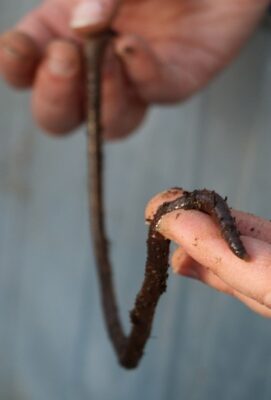 ***IMPORTANT PLANT SHARING UPDATE***
***IMPORTANT PLANT SHARING UPDATE***
Have you heard of a recent invasive species called jumping worm?
From the USDA invasive species website:
These earthworms are wriggling their way across the United States, voraciously devouring protective forest leaf litter and leaving behind bare, denuded soil. They displace other earthworms, centipedes, salamanders and ground-nesting birds, and disrupt forest food chains. They can invade more than five hectares in a single year, changing soil chemistry and microbial communities as they go, new research shows. And they don’t even need mates to reproduce…
These invaders have been located in Missouri, and can be spread inadvertently by sharing plant materials that may include worms or their egg cases.
Here is a link to what MDC says about these worms, and a video about them.
The Wild Ones St. Louis Chapter board has decided to refine our very recent policy about plant sharing at our Garden Gatherings. After further research and many conversations with knowledgeable members and local experts during the Partners for Native Landscaping Native Plant Fair on Sunday (4/10), we concluded: It is safe to share plants dug from gardens with the following precautions:
- Rinse the roots of the plant before planting. Gently massage roots in a basin of water to remove soil clumps, until no soil remains affixed.
- Afterwards, strain the water and place any solids larger than a poppy seed in a trash bag in the sun. This will destroy, through solarization, any jumping worm cocoons.
Precautions are not necessary if the shared plants are from seed grown in potting mix or are bare root.
For more information about jumping worms and their ecological impact, visit this fact sheet from the Cornell Cooperative Extension – ccetompkins.org/resources/

